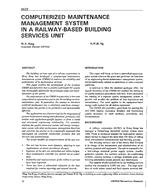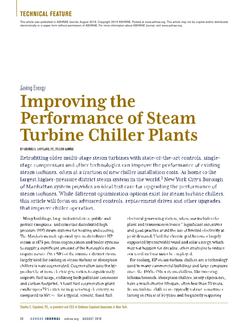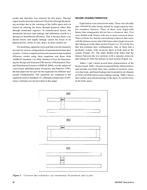The analysis presented attempts to establish the manner in which pulse combustion burner performanceis influenced by the principal design parameters (combustion chamber volume, exhaustpipe length and diameter, gas valve flow parameters and air/fuel ratio). The analytical modeldeveloped defines the unique operating point of the burner in terms of these parameters. Specifically,the frequency, peak pressure and firing rate are predicted by the model. Comparisonsof predicted resu1ts with experimental data from AGA are presented; the frequency agreementis good, the firing rate relationships are qualitatively in agreement, and the peak pressurecomparisons are partially successful. The limitations of the model and suggestions forits improvement are discussed.
The results suggest that the combustion chamber and tailpipe dimensions have a significanteffect on burner frequency, while the air and gas valve sizes have the greatest effect onburner firing rate and, through their effect on air-fuel ratio, on the peak pressure in thecombustion chamber.
Citation: Symposium Papers, Atlanta, GA, 1978
Product Details
- Published:
- 1978
- Number of Pages:
- 20
- File Size:
- 1 file , 970 KB
- Product Code(s):
- D-AT-78-02-4


